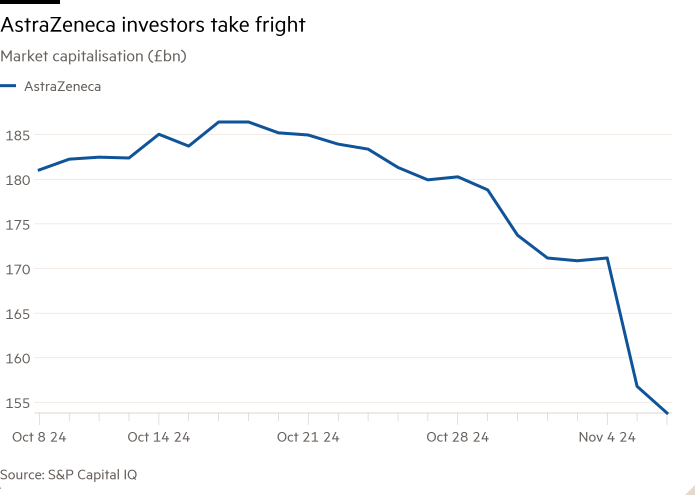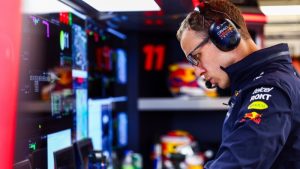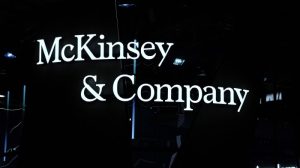China fright ups the stakes for AstraZeneca

Unlock the Editor’s Digest for free
Roula Khalaf, Editor of the FT, selects her favourite stories in this weekly newsletter.
Run for the hills! That is precisely what AstraZeneca’s shareholders are doing. Some £17bn was knocked off its market capitalisation in the first three days of this week amid fears that a corruption probe in China was intensifying. That is 12 per cent of its value, or more than the group’s entire forecast net income for 2025. Clearly, pharma investors still have little tolerance for legal risk of any kind.
China is AstraZeneca’s second-biggest individual market by sales, accounting for about 13 per cent, although its business there tends to be lower margin than in other geographies.
Its issues in China fall into three buckets. First, a medical insurance fraud investigation, which AstraZeneca disclosed to the market several years ago. Since investigations began at the start of the decade, about 100 salespeople in China — who no longer work for the company — have been sentenced for doctoring genetic test results. That enabled patients to qualify for state insurance for AstraZeneca’s lung cancer drug Tagrisso.
Second, the FTSE 100 company confirmed this week that two current, plus two former, executives in China, were under investigation for the alleged illegal importation of certain cancer drugs.
And finally, its high-profile China president, Leon Wang, has been detained by authorities over the past week. AstraZeneca has told investors that it does not have clear visibility on the reasons.

Nervousness is understandable. Investors have been here before. In 2014 rival GSK paid a near-$500mn fine after being found guilty of bribery by a Chinese court. A 15-month investigation by Chinese authorities into the British company was reputationally damaging and time-consuming.
It is anyone’s guess how investigations relating to AstraZeneca employees past and present may unfold. Unlike the GSK probe, though, accusations so far are not levelled at the company itself. AstraZeneca said it would fully co-operate “if requested”.
Of course there may well be a knock-on effect on China sales and profits, particularly from cancer drugs. But such impacts should be relatively modest. China oncology will account for perhaps $625mn-750mn of operating profit in 2025 on forecasts from Shore Capital’s Sean Conroy — less than 5 per cent of the group’s expected total.
AstraZeneca needs some good news to soothe investors’ nerves. Its chief executive Pascal Soriot earlier this year set a bold target to lift annual sales from $45.8bn to $80bn by 2030. Already, much was riding on a string of phase-3 trial readouts next year. This China fright may not prove really scary — but it has upped the stakes further regardless.
#China #fright #ups #stakes #AstraZeneca




